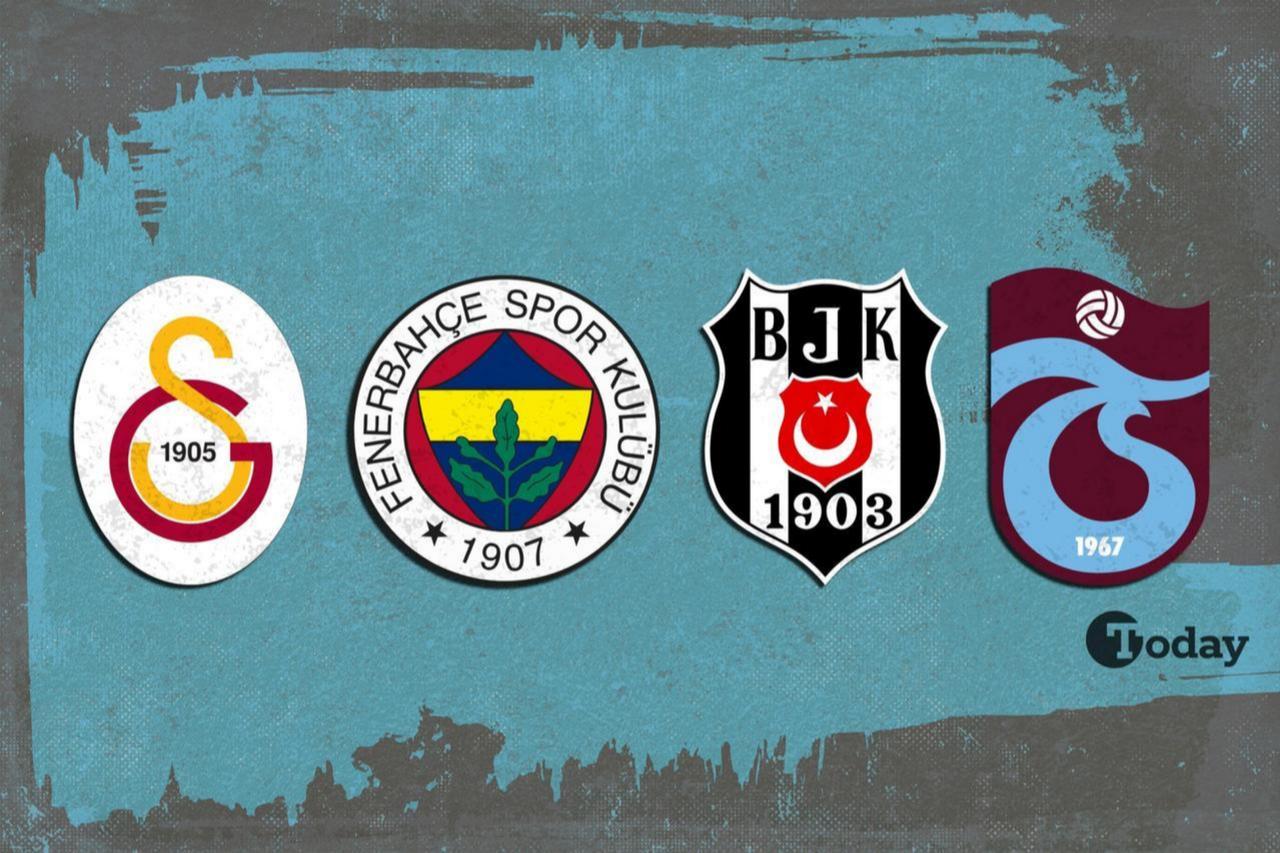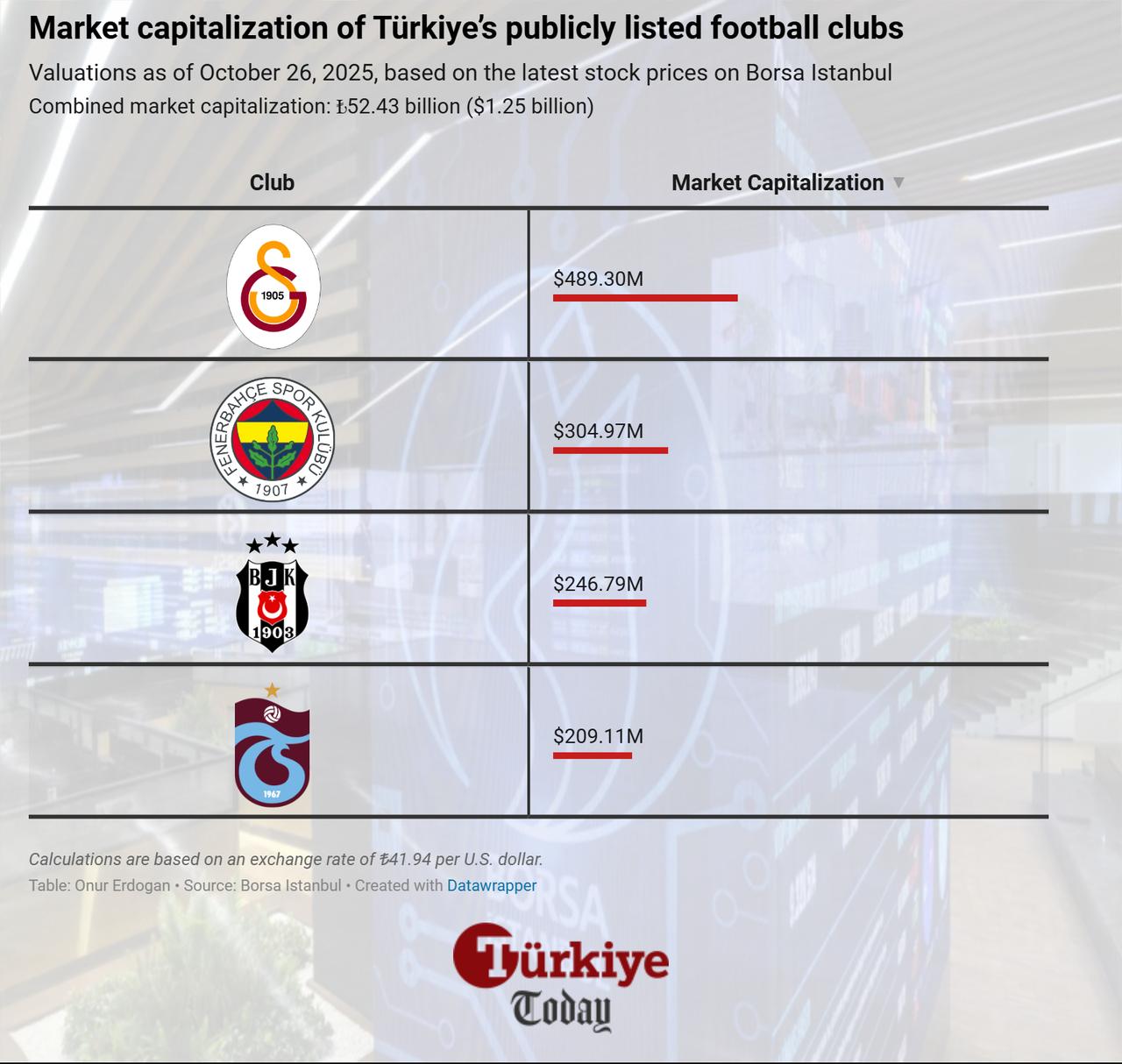
The big four Turkish football clubs—Besiktas, Fenerbahce, Galatasaray, and Trabzonspor—have reached a combined market capitalization of around ₺52.43 billion ($1.25 billion), driven by recent paid-in capital increases that strengthened their balance sheets.
The Turkish powerhouses have carried out a total of ₺18.66 billion in nominal paid-in capital increases this year—a process in which new shares are issued to raise additional equity from investors—expanding their issued share base and reinforcing their overall financial strength, as several clubs used the proceeds to reduce outstanding debts.
Galatasaray led Türkiye’s publicly traded football clubs with a ₺20.52 billion ($489.3 million) market capitalization, following a 150% paid-in capital increase that raised its equity base to ₺13.5 billion.
Fenerbahce ranked second with a ₺12.79 billion ($305 million) market cap after executing a 400% capital increase, lifting its paid-in capital to ₺1.25 billion.
Trabzonspor, which completed a 581% recapitalization that restored its equity to ₺7.5 billion, followed with a ₺10.35 billion market value.
Besiktas, which also carried out a 400% capital increase to reach a paid-in capital of ₺4.36 billion, recorded a ₺8.77 billion market capitalization.
In comparison with major European football stocks, Türkiye’s publicly traded clubs remain considerably smaller in market valuation.
Manchester United, listed on the New York Stock Exchange, leads the global football market with a capitalization of approximately $3.13 billion, while Juventus Turin on the Milan Stock Exchange follows at around $1.22 billion. Borussia Dortmund, traded in Frankfurt, holds a market value of about $440 million.

However, the clubs’ stocks have underperformed since the beginning of the year, as Borsa Istanbul’s Sports Index, which includes only these four clubs, has retreated by 23.6% overall.
By contrast, the benchmark BIST 100 index gained 9.8% during the same period in Turkish lira terms.
Among the three Istanbul clubs, Besiktas led the declines with a 47.5% drop, followed by Fenerbahce at 2.2% and Galatasaray at 1.94%. Trabzonspor, on the other hand, recorded a 25.8% gain over the same period.
The underperformance mainly stems from low profitability, high operating costs, and elevated financial expenses linked to outstanding debts.
Although recent capital increases have improved liquidity, the clubs continue to struggle with transfer-related spending, foreign-exchange exposure, and limited revenue growth from broadcasting and ticket sales, which continues to constrain their stock performance.